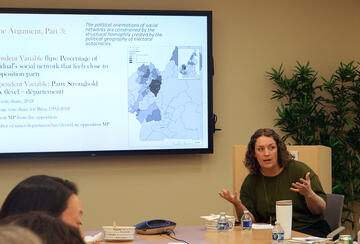CDDRL Research Seminar Series

Explore Past Seminars
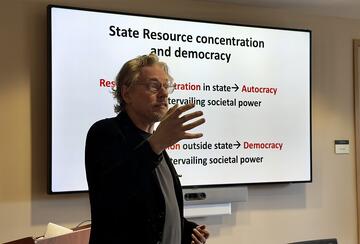
Lucan Way examines the structural relationship between state resource concentration and democratic outcomes, using Russia as a central case while situating it within broader comparative patterns.
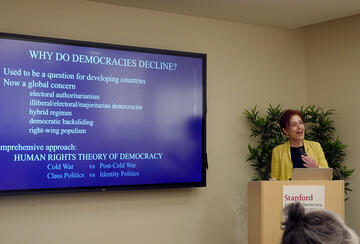
Zehra F. Kabasakal Arat presents a human rights theory of democracy to explain the growing trend of democratic backsliding across both developing and developed countries.
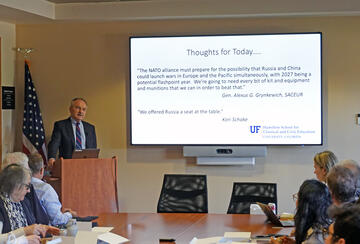
At a REDS seminar co-hosted by CDDRL and TEC, Andrew Michta assesses whether Europe’s security institutions are prepared for renewed great power competition.
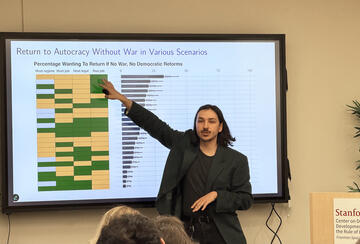
SURF postdoctoral fellow Emil Kamalov explains why political freedoms outweigh material benefits for many Russian emigrants considering return.
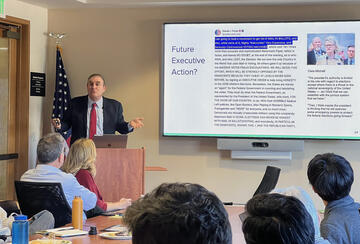
In a CDDRL research seminar, Nate Persily, the James B. McClatchy Professor of Law at Stanford Law School and Senior Fellow at the Freeman Spogli Institute, discussed revelations from the 2024 election and how the 2024 election can forecast the upcoming 2026 midterm election cycle.
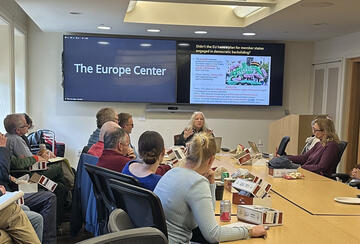
Professor Kim Lane Scheppele offered a clear and urgent account of a growing crisis inside the European Union (EU) during a recent REDS Seminar: the erosion of democracy within some of its own member states.
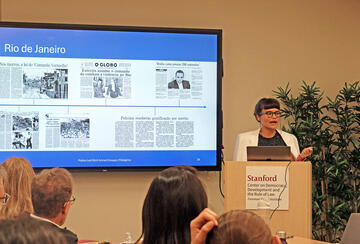
Gerhard Casper Postdoctoral Fellow Ana Paula Pellegrino presented her research on police-led armed illicit groups in Brazil, exploring what distinguishes them and the conditions that enable their formation.
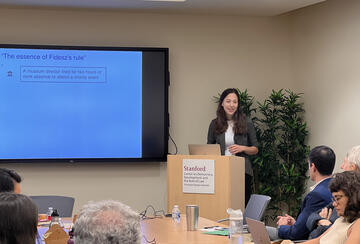
CDDRL Pre-doctoral Fellow Hanna Folsz presented her research, which builds on her focus on authoritarianism and democratic backsliding.

Georgetown political scientist Killian Clarke argues that unarmed, democratic revolutions are uniquely vulnerable to reversal, not because they lack legitimacy or popular support, but because of the kinds of power resources they rely on and later abandon.
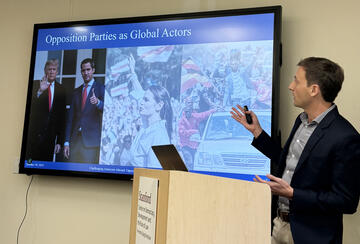
In a CDDRL research seminar, Einstein-Moos Postdoctoral Fellow Oren Samet explored the benefits, costs, and global reach of opposition diplomacy.
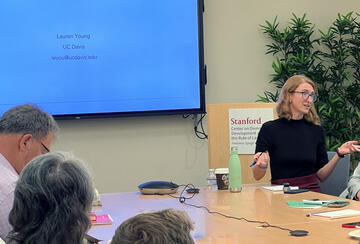
UC Davis Political Scientist Lauren Young examines why authoritarian incumbents use electoral repression selectively, why they often outsource it, and how elite cohesion shapes its organization, targeting, and effectiveness.
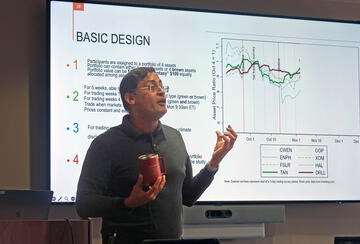
Can financial literacy shape climate beliefs? Saumitra Jha’s latest study suggests it can — and across party lines.
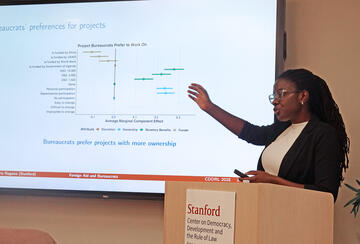
CDDRL postdoctoral scholar Maria Nagawa examines how foreign aid projects influence bureaucrats’ incentives, effort, and the capacity of bureaucratic institutions.
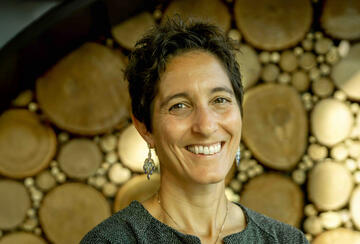
In Nigeria, women are far less likely than men to attend meetings or contact leaders. Claire Adida’s research reveals interventions that make a difference.

Dr. Natalia Forrat, a comparative political sociologist and lecturer at the University of Michigan’s Center for Russian, East European, and Eurasian Studies, explores how authoritarian regimes are maintained not only through top-down coercion but also through everyday social dynamics at the grassroots level.
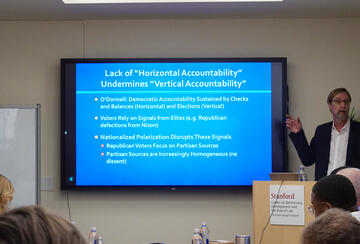
University of California, Berkeley Distinguished Professor Paul Pierson explores the risks of democratic backsliding in the United States in the face of rising polarization and inequality.

In a CDDRL research seminar, Clémence Tricaud, Assistant Professor of Economics at the UCLA Anderson School of Management, shared her research on the evolving nature of electoral competition in the United States. She explored a question of growing political and public interest: Are U.S. elections truly getting closer—and if so, why does that matter?

In a REDS seminar talk, co-hosted by CDDRL and The Europe Center, Princeton Professor of Politics Grigore Pop-Eleches shared findings from a major research project examining what drives support for Ukraine — and whether empathy can help counter growing war fatigue.

Associate Professor at Texas A&M University Danila Serra’s field research on the impacts of police ethics training provides hope for reducing corruption and restoring public faith in state institutions.

In a recent REDS Seminar, Syracuse University Professor of Political Science Brian Taylor examined the state of the war, the prospects for peace, and the political dynamics shaping both Ukrainian resistance and Russian aggression.
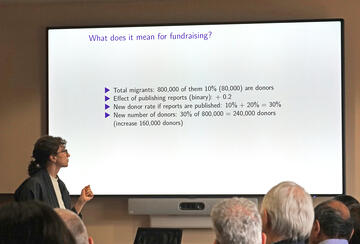
CDDRL Postdoctoral Fellow Ivetta Sergeeva’s research on the Russian diaspora’s willingness to donate to oppositional organizations demonstrates that the criminalization of groups can incentivize greater donor support among emigrants, contrary to the Putin regime’s intentions.

In the wake of widespread challenges to affirmative action policy, Stanford Political Scientist Soledad Artiz Prillaman’s research challenges the notion that electoral quotas for minority representation weaken candidate quality.

Francis Fukuyama traces how scholars and policymakers have grappled with the tension between empowering bureaucracies to act effectively and ensuring they remain accountable to political leaders.
Tracing land’s role as a source of power, University of Chicago Professor of Political Science Michael Albertus analyzed how its distribution affects governance, social stratification, and conflict.

